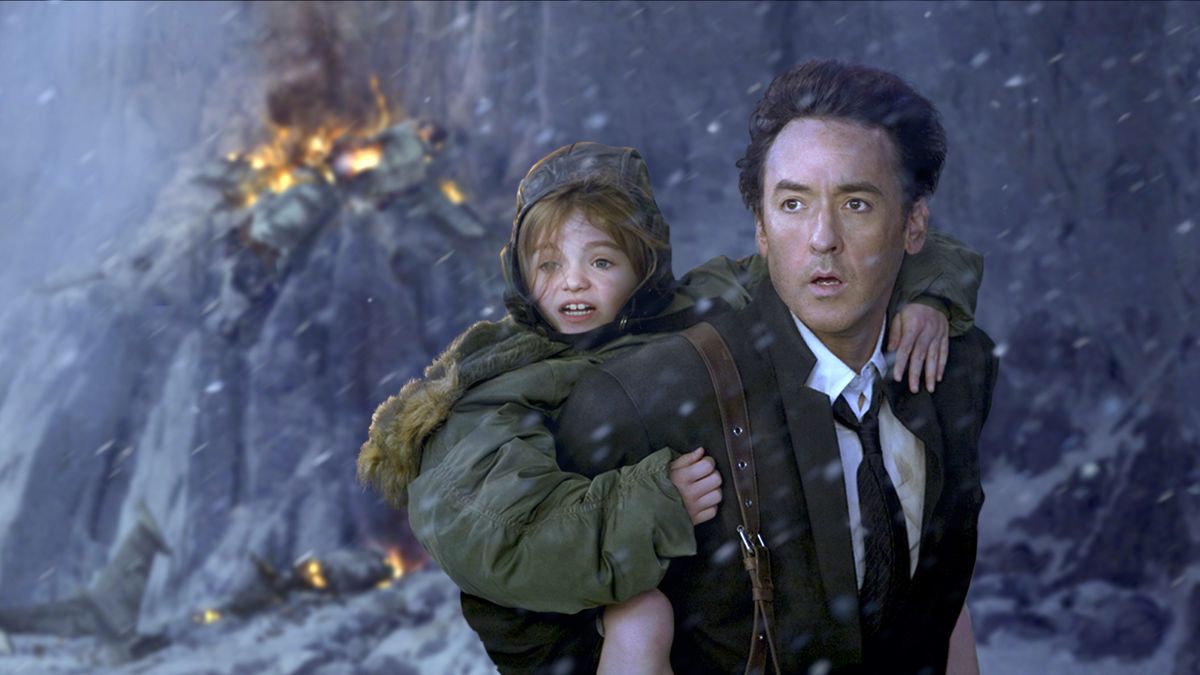‘Master of Disaster’ strikes again
Roland Emmerich’s ‘2012’ takes his familiar, destructive blueprint to even greater heights

Roland Emmerich has an ongoing project: destroying the world.
In 1996’s “Independence Day,” the German director sent aliens to wipe out the White House. In 1998, he unleashed “Godzilla” to wreak havoc on the streets of New York. In 2004’s “The Day After Tomorrow,” he froze the planet in a new ice age.
But in his new film, “2012,” which reaches theaters today, things get really bad.
Emmerich, who has earned the unofficial title of “Master of Disaster,” admits having searched Google for a doomsday scenario even more spectacular than his previous destructions of Earth. He came up with the Mayan calendar, which abruptly expires Dec. 21, 2012 – the end of the world, some theorists believe.
Does he believe it himself?
“It’s a compelling story,” Emmerich says, grinning. Pressed further, he replies: “Did I believe in aliens when I made ‘Independence Day’?”
The Mayans failed to specify how exactly the apocalypse would look, so Emmerich opted for a collapse of the Earth’s crust, giant floods, and hellish rains of fire (yet not enough to kill the main character, played by John Cusack).
At a personal-record budget of at least $200 million, Emmerich deadpans that “I didn’t refrain myself this time.”
As if he had restrained himself in his previous films. Since “Independence Day,” he has focused on big-budget movies, delivering five blockbusters in a row, each grossing far more than $100 million domestically.
Rarely has a Hollywood director had such a track record. Then again, rarely has a director so consistently failed to impress critics. The legendary Roger Ebert once even likened Emmerich to Ed Wood, widely considered the worst filmmaker in history.
But Emmerich, who at 53 still looks boyish and speaks in the gentlest of voices, couldn’t care less. It doesn’t bother him to be known as “Roland the Destroyer,” he says – though “it bothers my mother.”
He says he’s making movies “for the masses. That’s nothing to be ashamed of.”
His talent and passion for screen extravaganzas “wasn’t accepted in Germany,” Emmerich says, so he left for the United States.
He established his reputation here in 1992, taking over the Jean-Claude Van Damme action vehicle “Universal Soldier” when original director Andrew Davis quit. Emmerich finished the film on time and on budget.
Still, he says, “I would like to think of myself as a kind of outsider in Hollywood.”
And he does things his way. Auctioning off his scripts among studios allows him to maintain creative control.
Against contrary advice, Emmerich made an African American (Will Smith) and a Jewish man (Jeff Goldblum) the heroes of “Independence Day.” And “The Day After Tomorrow” turned out to be a harsh indictment of the Bush administration’s climate policies.
In Germany, he’s a strong supporter of the environmentalist Green Party. He campaigns for gay rights, and he doesn’t hide his contempt for organized religion.
In “2012,” the pope is buried under debris when St. Peter’s dome comes tumbling down, and peace-loving Tibetan monks are not spared by the great floods. No Islamic site is seen perishing, though.
“We didn’t destroy Mecca because we didn’t want to have to deal with a fatwa,” Emmerich says.
“I really think Roland manages to give these giant blockbusters a personal touch,” says star Cusack. “There’s a dark side to his films.”
Emmerich says he couldn’t make a patriotic feel-good movie like “Independence Day” anymore: “These days I have a much more pessimistic outlook for our civilization, despite the good America can do for the world under Barack Obama.”
He calls “2012” his “darkest film” to date.
“I packed everything in this movie,” he says. “I don’t see what could be left for me in the genre.”
Yet Emmerich won’t say “2012” is definitely the last time he takes the world to the brink of destruction: “Never say never.”
As Cusack puts it: “Why would someone stop doing what he’s obviously so good at?”